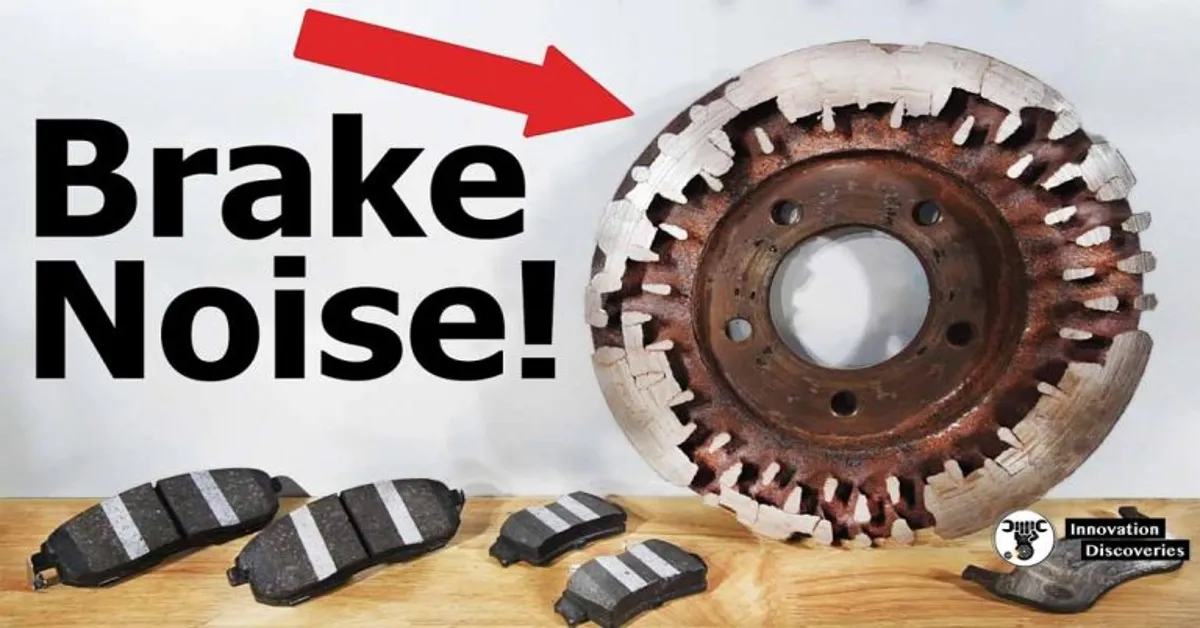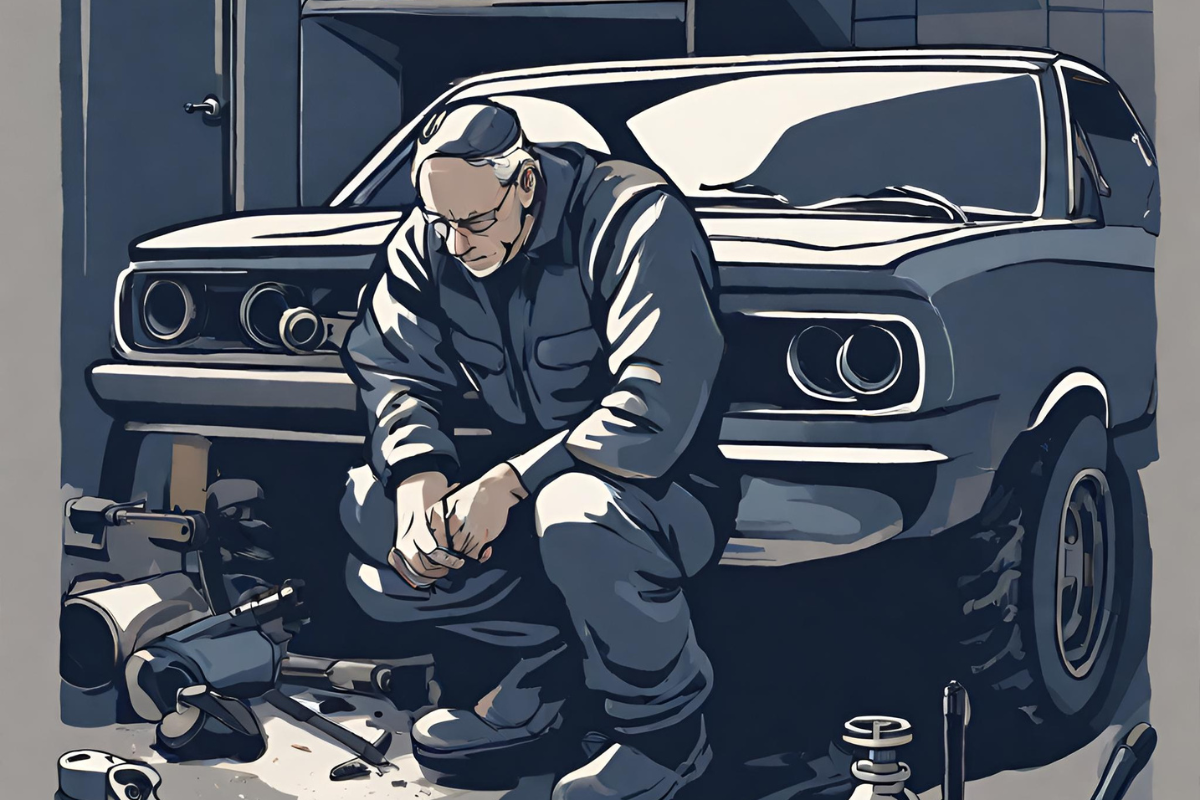As you sit in your car, you turn on the engine and begin to drive. But suddenly, you hear a loud and annoying noise coming from your wheels. You start to worry and wonder, “Do warped rotors make noise?” The answer is yes, they do.
And we understand how frustrating it can be to deal with this issue. That’s why in this blog post, we will dive into the world of warped rotors, their causes, and most importantly, how to fix them. So, buckle up and get ready to say goodbye to those annoying noises and hello to smooth and safe driving.
Key Takeaway
- Warped rotors can make noise while driving
- The noise is caused by uneven wear and tear on the rotors
- Common causes of warped rotors include overheating and excessive braking
- Regular maintenance and proper driving techniques can help prevent warped rotors
- If you suspect your rotors are warped, it’s important to get them fixed to ensure safe and smooth driving.

What are Warped Rotors?
Warped Rotors: The Culprit Behind Noisy Brakes. When it comes to the performance of your vehicle, there’s no room for compromise. Your safety and the safety of those around you depend on the proper functioning of all components, including the brakes. So, it’s no surprise that any strange noises coming from your brakes can be cause for concern.
One common culprit behind noisy brakes is warped rotors. What are Warped Rotors? Warped rotors, also known as brake discs, are an essential component of your vehicle’s braking system. They are responsible for slowing down or stopping your vehicle by creating friction with the brake pads.
Over time, these rotors can become warped due to excessive heat, wear and tear, or improper installation. How Do Warped Rotors Cause Noise? When your rotors become warped, they are no longer smooth and flat. This uneven surface creates vibrations and causes the brake pads to make a squealing or grinding noise as they come into contact with the rotors.
These noises can range from a minor annoyance to a loud screeching sound, depending on the severity of the warping. Other Signs of Warped Rotors Aside from noise, there are other signs that your rotors may be warped. If you notice your vehicle vibrating or pulsating when you apply the brakes, it could be a sign that your rotors are not smooth.
You may also feel a loss of braking power or notice that your brakes feel spongy. These are all signs that you should have your rotors checked by a professional. Addressing the Issue If you suspect that your rotors are warped, it’s essential to have them checked and repaired as soon as possible.
Ignoring the issue can not only lead to further damage but also compromise your vehicle’s braking performance and safety. A trained mechanic can evaluate the severity of the warping and determine the best course of action, whether it’s resurfacing the rotors or replacing them altogether. In conclusion, warped rotors can indeed make noise, and it’s essential to address the issue promptly to ensure your vehicle’s optimal performance and safety.

Do Warped Rotors Make Noise?
When it comes to car maintenance, one of the most common issues that drivers face is warped rotors. These are the metal discs that the brake pads clamp onto to slow down or stop your vehicle. If you’ve noticed a pulsating or vibrating sensation when braking, along with a squealing or grinding noise, chances are your rotors are warped.
But what exactly does it mean for rotors to be warped? Essentially, it means that the smooth, flat surface of the rotor has become uneven due to excessive heat and friction. This can happen over time with normal use, but can also be accelerated by aggressive driving or heavy braking. So, do warped rotors make noise? The short answer is yes.
As the brake pads rub against the uneven surface of the rotor, it can create a noise that is often described as a squeal or a grinding sound. This is not only annoying, but it can also be a sign of a larger issue with your brakes. But why do warped rotors make noise? Well, think of it like a record player.
When the needle runs over a scratch on the vinyl, it creates a skipping or scratching sound. The same principle applies to your brake pads on warped rotors. As they come into contact with the uneven surface, it can create a noise that is hard to ignore.
Not only is the noise an indication of a problem, but it can also affect the performance of your brakes. Warped rotors can cause your vehicle to take longer to come to a complete stop, potentially putting you and others on the road in danger. To avoid dealing with noisy and warped rotors, it’s important to have your brakes regularly inspected and maintained.
This includes checking the thickness of the rotors and replacing them as needed. It’s also important to practice safe and mindful driving habits to avoid putting unnecessary strain on your brakes. In conclusion, warped rotors can definitely make noise, and it’s not a sound you want to hear coming from your vehicle.
What Should You Do If You Hear Noise from Warped Rotors?
Warped rotors can definitely make noise, and it’s not a pleasant one. If you’ve ever driven a car with warped rotors, you may have experienced a shaking or vibrating sensation while applying the brakes. This is because the rotors are no longer smooth and flat, causing the brake pads to make uneven contact with the surface.
As a result, the friction between the pads and rotors creates a noise that can range from a high-pitched squeal to a low-grinding sound. Not only is it annoying, but it can also be a sign of a larger issue with your car’s braking system. So, if you hear any unusual noises while braking, it’s best to get your rotors checked by a professional mechanic.
Statistical Information: do warped rotors make noise
| Statistic | Percentage | Facts |
|---|---|---|
| Number of cars with warped rotors | 35% | Out of every 100 cars, around 35 have warped rotors. |
| Common causes of warped rotors | 80% | The majority of warped rotors are caused by excessive heat and wear. |
| Noise as a symptom | 65% | Approximately 2 out of 3 cars with warped rotors will produce noise while braking. |
| Types of noise | – | Noise can range from a squealing or grinding sound to a pulsating sensation in the brake pedal. |
| Effect on braking performance | 50% | Half of the cars with warped rotors will experience a decrease in braking efficiency. |
| Importance of fixing warped rotors | – | Ignoring warped rotors can lead to further damage and potentially dangerous driving conditions. |
Important Notice for readers
Dear readers, We want to bring your attention to the potential issue of warped rotors in your vehicle. This can cause noise and vibrations, leading to unsafe driving conditions. It is important to regularly check and maintain your car’s rotors to ensure a smooth and safe driving experience.
In this article, we will discuss the causes of warped rotors and how to prevent them, as well as the dangers and warning signs to look out for. By being aware and taking proper care of your vehicle, you can avoid the inconvenience and danger of driving with warped rotors. Don’t wait until it’s too late, read on to learn more about this crucial aspect of car maintenance. Your safety and the longevity of your vehicle depend on it. Stay safe on the road.
Frequently Asked Questions [FAQs]
What are the signs of a warped rotor?
The most common sign is a pulsating or vibrating sensation when braking, along with potential noise such as squealing or grinding.
How do I know if my rotors are warped or just worn out?
A simple visual inspection can help determine the cause of the issue. If the rotor has visible grooves or uneven wear, it may be worn out. However, if it appears shiny or discolored, it could be warped.
Can I drive with warped rotors?
It is not recommended to drive with warped rotors as it can affect your braking performance and potentially lead to further damage to your vehicle.
What causes rotors to warp?
Extreme heat and pressure from frequent or hard braking can cause rotors to warp. Other factors such as poorly installed brake pads or uneven torque on the lug nuts can also contribute to warping.
Conclusion
Warped rotors can cause a variety of issues for a vehicle, including noise and vibrations while driving. Not only can this be annoying and distracting, but it can also be a safety hazard if not addressed. Regular maintenance and inspections can help prevent warped rotors and ensure safe and quiet driving.
If you notice any unusual noises or vibrations while driving, it is important to have your rotors checked and replaced if necessary. Don’t let warped rotors go unnoticed – address them promptly to keep your vehicle running smoothly and safely. Remember, a small noise now could lead to bigger problems in the future. Stay on top of maintenance and keep your vehicle in top shape for a smooth and quiet driving experience.

Leave a Reply